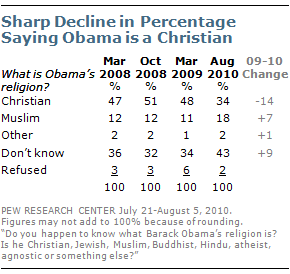War of the mind
In preparing recently for my major paper I came across some very interesting information. My paper was over the history of the role of psychology in relation to good and evil. I chose to drill it down a little deeper and look at the role of behaviorism and environment on the influence of evil. I read Dr. Philip Zimbardo’s book called the Lucifer Effect in which he discusses the intense role a situation can play on a seemingly “good” person to be able to produce “evil” acts. He discusses the American held prison in Iraq, Abu Ghraib, the genocide at Rwanda and so forth. He makes a very convincing argument that human beings tend to change their viewpoints on what is an evil act depending on the immediate situation that they are in.
 While reading Zimbardo’s book I thought to the Nuremberg trials in the late 1940’s where in the world court tried the executive branch of the Nazi military high command. At the time many of these men were claiming that they were simply following orders, so the goal of the prosecutors was to establish that the highest ranking members of Hitler’s Military cabinet had actually conspiratorially planed to expand war. German efficiency being what it was, the prosecutors found that the Germans kept written transcriptions on every meeting. Evidence showing that Hitler knew that the country’s biggest problem was that of real estate, and that if they were going to expand the German holdings that it would have to be done through war. He also speaks of knowing that the German people would need a common enemy to rally behind. The psychological warfare against the Jewish and Polish people begins. By dehumanizing his neighbors, imaginary, and passionate speeches Hitler slowly changed the mental mindset of his people into a weapon of hate. It could be argued that Hitler understood human behaviorism better than any other person alive up to that point. He shaped the mental image of an entire culture of people into a weapon of hate.
While reading Zimbardo’s book I thought to the Nuremberg trials in the late 1940’s where in the world court tried the executive branch of the Nazi military high command. At the time many of these men were claiming that they were simply following orders, so the goal of the prosecutors was to establish that the highest ranking members of Hitler’s Military cabinet had actually conspiratorially planed to expand war. German efficiency being what it was, the prosecutors found that the Germans kept written transcriptions on every meeting. Evidence showing that Hitler knew that the country’s biggest problem was that of real estate, and that if they were going to expand the German holdings that it would have to be done through war. He also speaks of knowing that the German people would need a common enemy to rally behind. The psychological warfare against the Jewish and Polish people begins. By dehumanizing his neighbors, imaginary, and passionate speeches Hitler slowly changed the mental mindset of his people into a weapon of hate. It could be argued that Hitler understood human behaviorism better than any other person alive up to that point. He shaped the mental image of an entire culture of people into a weapon of hate.





Bradley Campbell on What's Love Got to Do with It?
1:21 pm, 10.04.10
If we pick a mate unconsciously due to genetics, I took this to mean that the characteristics we find attractive are strongly influenced by genetics. That a trait that I find attractive could be linked to a preference. If my Father found an attribute attractive, that I might share that same attraction not due to observation or meddling, but more to due with the fact that he and I share many of the same genes. Our predisposition to accept a mate, or even our Christianity might have more to due with the Genes that we share vs. the environment that we grow up in. If a monozygotic twin has OCD the the other twin has more than a 50% chance of having it as well. With non-identical twins, if one has OCD then the other twin has a 25% chance of having it as well. The closer the genetics, the higher the possibility of developing a psychological abnormality.
Bradley Campbell on Phineas Gage and The Soul
1:10 pm, 10.04.10
Very interesting post, This has been a theme that I have thought much about. What really defines a soul? I remember arguing with a friend that by some of the rules of what defines a soul that certain animals show the characteristics of possessing a soul. It seems that the existential ability to being self aware is one of the defining characteristics of a soul. If someone experienced significant enough brain damage, could they lose their ability to be self aware? Would that mean that a soul is a possessive item that could be lost? Heavy stuff……
Bradley Campbell on I am afraid of Phineas Gage
1:05 pm, 10.04.10
I think that this is a great observation, we often acknowledge how brief and temporary life can be and that we should cherish every moment. However we never think that we can completely, and without our consent lose ourselves and still remain alive. What a scary prospect that we can lose the decision making abilities that we have developed throughout our life time. What a scary thought that my ability to choose may not be entirely up to me. If I suffered brain damage severe enough would I still be a christian?
Bradley Campbell on Who am I? Lost.
3:50 pm, 09.20.10
I have to agree with you about the absolute awesomeness of quantum leap, I really enjoy the last season and even the last episode. The subtle recognition that the experiment will never end and that Sam is actually on a divine mission set forth by God himself. Your experience sounds a lot like the experience of the prisoner in the Allegory of the Cave. That there are external truths that continue whether we are able to perceive them or not.
Bradley Campbell on Darko Determinism
3:43 pm, 09.20.10
Very interesting movie, Donnie seems like he becomes a willing participant in his own madness, I wonder is donnie a slave, or is he simply curious. Is his curiosity so strong by the enticement of following the path that he actually cant help but follow it and thus he is a slave to it. This is a great model for the “catch 22” of determinism vs. free will.
Bradley Campbell on Is the need for God innate or derived?
12:25 pm, 09.20.10
Great post. About 8 years ago a missionary named Marion Laslow came and spoke in chapel for a week. She was famous for enmeshing herself with an African tribe who had never been had any access to an individual outside of their tribe, especially a western individual. She helped them establish their first written language and over the 30 years she worked with them even translated their newly formed written language into a bible for them. She talked at some great length about what you have talked about here. they had a deep concept of God and had never had contact with a christian society. Although their idea of God had very worldly origins their cultural system built from their ideas of wrong or right mirrored many of our basic laws (10 commandments, shall not murder, steal, adultery and so on). She went on to say that she felt that these people had a deep basic communion with the Holy Spirit and had never realized this influence. It was very interesting that she suggested that the core human need to seek out a Godly understanding of the nature of mankind could go back to an lifelong interaction to the Holy Spirit.
Bradley Campbell on Views on the Cave
11:20 pm, 09.05.10
Courtney, I agree that when I first heard of Plato’s theory of the allegory of the cave, I didn’t put much thought into it and took it at face value. I have been fascinated by the responses of our classmates, and have come to look at the theory much differently. In a discussion I had with a friend, he described the allegory of the cave as if Christians were the enlightened souls who broke their bonds while the rest of the world rejected the truth. As our conversation deepened, the question came about that what if, as Christians, we had simply shackled ourselves down with our system of beliefs, and had rejected the world’s view of the truth? From this point of view, the cave would be subjective.
Imagine the people that Plato shared this theory with while he was still alive? They might have felt that they were the enlightened ones, and that he was just crazy.
Bradley Campbell on On the Allegory of the Cave
4:53 pm, 08.31.10
This is a really interesting idea from your post and from Jordan’s comment….I always looked at the cave as if I was the person who broke loose and was enlightened……but I never thought of the cave as possessive. Like I have my own personal cave that I would lash out at intruders for trying to tear down. Good post
Bradley Campbell on The Fetishization of Authenticity
1:42 pm, 08.31.10
I really enjoyed reading your post, I agree that some of the social norms that we get trapped in are kind of funny. Our desire to break the mold and be unique is actually the norm because when you step out of the cave you can see that everyone else is trying to do the same thing, so really……breaking away from the social norm becomes the social norm.